#learnEnglish
Explore tagged Tumblr posts
Text


"Outdraw" = attract a larger audience. ⠀ Past / Past Participle: outdrew / outdrawn ⠀ Example: Joe couldn't believe that such a nerd like Mike outdrew all girls on the beach. ⠀ Example: She outdraws all male stars at the box office. ⠀ Learn irregular verbs in our app - https://onelink.to/9ssyrh
#irregular verbs#irregularverbs#english language#english#learn english#learnenglish#irregular verb#english verbs#efl#toeic#toefl#esl
7 notes
·
View notes
Text
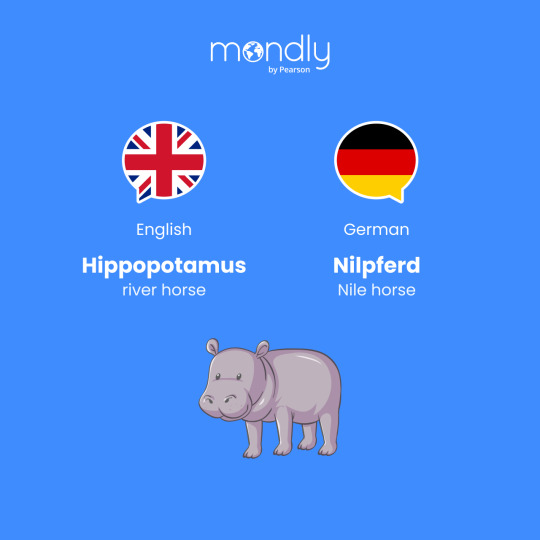
Moo Deng has got us all obsessed with hippos. 🥹 How do you say 'hippopotamus' in your language? 🦛
#mondly#pearson#moodeng#hippo#languages#languagelearning#didyouknow#learnlanguages#english#german#learngerman#learnenglish#inglese#inglesfacil#angielski#ingles#inglés#inglês#anglais#hablainglés#英語を習う#영어회화#deutsche
11 notes
·
View notes
Text
Enhance Your English Skills with Fun Games: Wordle and 4 Pics 1 Word
Introduction
Learning English can sometimes feel overwhelming, but incorporating fun games like Wordle and 4 Pics 1 Word into your routine can make the process both enjoyable and effective. These games not only entertain but also challenge your vocabulary, spelling, and critical thinking skills, making them perfect tools for anyone looking to improve their English.
The Power of Wordle in Language Learning
Wordle has taken the internet by storm, and for good reason. This simple yet addictive game asks players to guess a five-letter word in just six tries. The game’s appeal lies in its simplicity and the challenge of finding the correct word with limited clues. But how exactly can Wordle help with learning English?
Vocabulary Expansion: Every Wordle round introduces you to new words, broadening your vocabulary. Even if you don’t guess the word correctly, you’re exposed to a variety of terms that you can add to your lexicon.
Spelling Practice: Wordle requires precise spelling, making it an excellent way to practice and reinforce correct spellings of English words.
Critical Thinking: The game encourages you to think critically about word patterns, letter placements, and possible word combinations, which are crucial skills in language learning.
Why 4 Pics 1 Word is a Must-Try for English Learners
4 Pics 1 Word is another fantastic game that can boost your English skills. The game presents four images that all have something in common, and your task is to figure out the word that links them.
Contextual Understanding: 4 Pics 1 Word helps you understand words in context, which is a vital part of mastering a new language. By connecting images to a single word, you reinforce the meaning and usage of that word in different scenarios.
Word Association: This game enhances your ability to associate words with various concepts and ideas, making it easier to recall and use them in conversation.
Learning Through Play: The game format is engaging and interactive, ensuring that you’re learning while having fun. This method of learning through play helps solidify your understanding and retention of new vocabulary.
Tips for Using Wordle and 4 Pics 1 Word in Your English Learning Routine
Daily Practice: Incorporate these games into your daily routine. Just a few minutes each day can significantly improve your vocabulary and problem-solving skills.
Challenge Yourself: Don’t be afraid to tackle difficult words or puzzles. The more you push yourself, the more you’ll learn.
Play with Friends: Engage in friendly competition with others who are also learning English. Discussing the puzzles and solutions can provide additional learning opportunities.
Conclusion
Learning English doesn’t have to be all about textbooks and grammar exercises. By integrating games like Wordle and 4 Pics 1 Word into your study routine, you can make learning more enjoyable and effective. These games not only challenge your mind but also enhance your vocabulary, spelling, and critical thinking skills, making them invaluable tools for any English learner. So why not start today? Play a round of Wordle or solve a puzzle in 4 Pics 1 Word, and watch your English skills grow!
7 notes
·
View notes
Text
◦•◦Word of the Day◦•◦
◦•◦ Saccharine ◦•◦
Definition: Sickeningly Sweet
Sentence: She distracted the guards with her sacharine voice.
#writing#words#definition#meaning#learning#writers of tumblr#writers on tumblr#writing tips#writing advice#spelling#beautiful#poems on tumblr#poets on tumblr#tumblr#viral#trending#new trend#day 1#learnsomethingneweveryday#learnenglish#writerscommunity#new series
16 notes
·
View notes
Text
#CELPIP#CELPIPPrep#CELPIPMadeEasy#LanguageTest#EnglishProficiency#StudyTips#TestPreparation#CanadaImmigration#EnglishSkills#CELPIPSuccess#ExamStrategy#LearnEnglish#TestReady#LanguageLearning#ScoreHigh#CELPIPGuide
6 notes
·
View notes
Text
Birthday #1 🥳
Wooowwww! A full year has passed since we began this 65-word adventure.
I remember a year ago when I decided to launch 65 Words after working on it for a couple of weeks. That day and night, I hardly slept – it was crazy to see so many people posting and commenting. Since then, it’s been a beautiful journey.
Today, I’ve corrected a lot of texts in Spanish, and it feels great to help with something so simple (well, simple for me, since Spanish is my native language) and to feel the gratitude from those who have been posting almost daily here. Today, we’re celebrating with a new design that I’ve been working on for weeks – more than I really expected – and I hope most of you like it. As always, your feedback is welcome, whether good or bad. For now, I’ll leave it here and owe you the stats.

We’d like to send a huge thank you to everyone who’s written with us, day after day. Your creativity and dedication have made this milestone possible. Every word you’ve shared has helped shape this journey into something truly special.
Here’s to more stories, more ideas, and many more years of writing. Thank you for being part of this! 🎉
#learn spanish#learning languages#learnenglish#learn italian#learn english#learn chinese#learn german
3 notes
·
View notes
Text
youtube
Настройся на английский. Изучай английский, запоминая песни. Мы создали новую песню для запоминания новых английских слов. Слушаем и запоминаем то, что получилось.
Пишите свои новые английские слова, мы добавим их в новые выпуски. Поможем друг другу в изучении такого сложного языка.
В этом видео мы выучим минимум 10 новых английских слов и фраз.
1. Perhaps – возможно
2. Suddenly – внезапно, вдруг
3. Direction – направление
4. Divided – разделённый
5. Difference – разница, различие
6. Reason – причина
7. Raised – поднятый, повышенный (может также означать “воспитанный” в зависимости от контекста)
8. Held – удерживаемый, проведённый (например, мероприятие)
9. Describe – описывать
10. Solve – решать (проблему, задачу)
Текст песни для запоминания английских предложений и слов:
[Verse 1]
Perhaps the time will show the way,
Возможно, время покажет путь,
Suddenly, the clouds fade away.
Внезапно облака исчезают.
A new direction opens wide,
Новое направление открывается перед нами,
No longer divided, we stand side by side.
Больше не разделены, мы стоим плечом к плечу.
[Chorus]
What’s the difference? It’s all so clear,
В чём разница? Всё стало ясно,
The reason we’re here is to conquer fear.
Причина, почему мы здесь, — побороть страх.
Raised by hope, held by dreams,
Подняты надеждой, удержаны мечтами,
Describe the path, solve the themes.
Опиши путь, реши задачи.
[Verse 2]
Perhaps the stars will guide us tonight,
Возможно, звёзды укажут путь этой ночью,
Suddenly, the darkness turns to light.
Внезапно тьма превращается в св��т.
Every direction leads to the unknown,
Каждое направление ведёт в неизвестность,
But divided hearts can’t build a home.
Но разделённые сердца не могут построить дом.
[Chorus]
What’s the difference? It’s all so clear,
В чём разница? Всё стало ясно,
The reason we’re here is to conquer fear.
Причина, почему мы здесь, — побороть страх.
Raised by hope, held by dreams,
Подняты надеждой, удержаны мечтами,
Describe the path, solve the themes.
Опиши путь, реши задачи.
[Bridge]
Perhaps we’ve always known inside,
Возможно, мы всегда знали в глубине души,
Suddenly, our souls collide.
Внезапно наши души встречаются.
The direction is forward, together we go,
Направление вперёд, вместе мы идём,
Not divided, let the unity show.
Не разделены, пусть единство проявится
[Outro]
Describe your reason, solve your fears,
Опиши свою причину, реши свои страхи,
Held by dreams through the years.
Удержаны мечтами через годы.
Raised by love, the difference is clear,
Подняты любовью, разница становится ясной,
Perhaps the future is already here.
Возможно, будущее уже здесь.
#LearnEnglish#SpeakEnglish#StudyEnglish#gartage_education#английскийпоплейлистам#английскийпопесням#английскийдляначинающих#Youtube
2 notes
·
View notes
Text
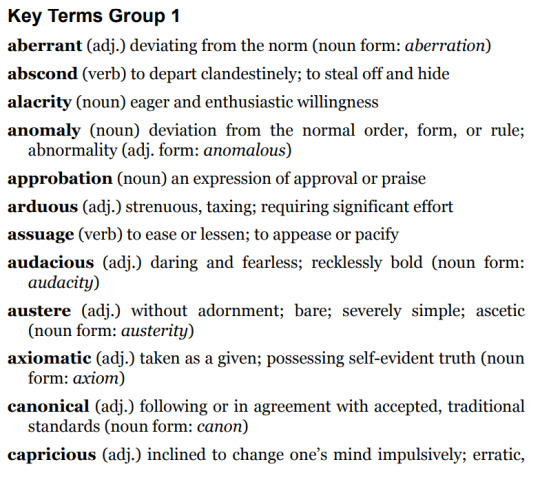
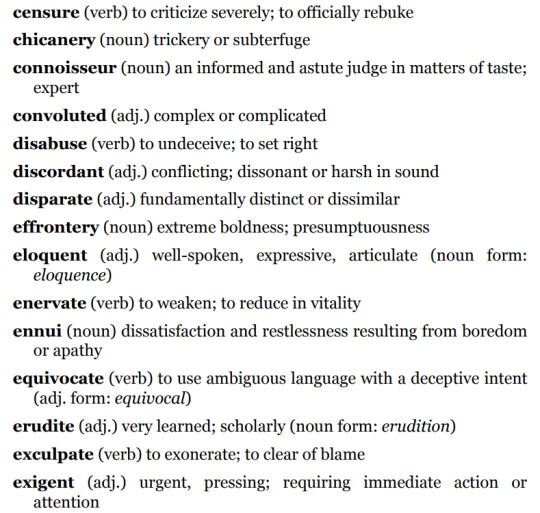
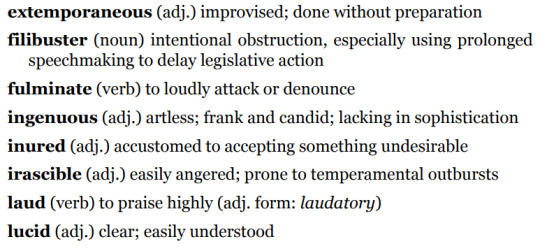
Source: Cracking the GRE Premium Edition with 6 Practice Tests, 2020
Let me know if more are needed Tip: Put them in gpt and ask it to create a downloadable version of flashcards
#VocabularyBuilding#LearnVocabulary#VocabularyPractice#WordOfTheDay#WordPower#ExpandYourVocabulary#ImproveYourVocabulary#DailyVocabulary#AdvancedVocabulary#VocabularyTips#Exam Preparation#ExamPreparation#ExamSuccess#StudySmart#StudyTips#ExamStudy#AceYourExams#TestPrep#ExamStrategies#StudyMotivation#PrepareForExams#Language Learning#LearnEnglish#EnglishVocabulary#ESLVocabulary#LanguageLearning#LanguageStudy#EnglishLearningTips#MultilingualSkills#SecondLanguageLearning
2 notes
·
View notes
Photo
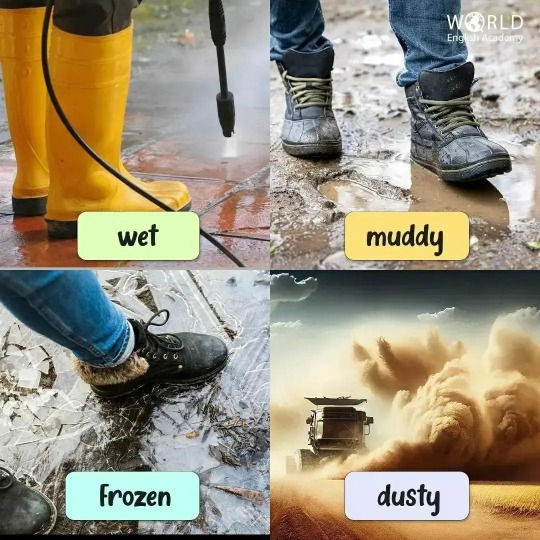



Like❤️ |Share👥 | Follow✅ Credits : @english_wea
#learnenglish#englishgrammar#vocabulary#englishclass#studyenglish#englishlanguage#americanenglish#anglais#englishteacher#englishtips#learningenglish#esl#grammar#englishlessons#ielts#englishonline#angielski#englishstudent#easyenglish#inglés#englishlesson#إنجليزي#inglês#англи́йский#inglesonline#inglesnoinstagram#speakenglish#eslteacher#LanguageLearning#LearnLanguages
26 notes
·
View notes
Text
Welcome to Learn English with Chloe !I’m a TEFL-certified tutor sharing tips, resources, and motivation to help you improve your English skills.📚 Join me for daily language tips, vocabulary challenges, and study resources.🖥️ Book lessons with me on https://preply.com/en/tutor/4540321
Follow me for more!
Vocabulary Challenge
10 Useful Words for Everyday Conversations
"Let’s boost your English vocabulary with 10 words you can use every day!
Genuine – real or authentic.Example: This leather bag is genuine, not fake.
Appreciate – to be thankful for something.Example: I really appreciate your help.
Effortless – something that requires no effort.Example: She made cooking look effortless.
Reliable – dependable or trustworthy.Example: He’s a reliable friend.
Delighted – extremely happy.Example: I’m delighted to see you!
Complex – complicated or difficult to understand.Example: The math problem was too complex for me.
Opportunity – a chance to do something.Example: Don’t miss the opportunity to learn!
Grateful – feeling or showing thanks.Example: I’m grateful for your support.
Efficient – working well without wasting time or effort.Example: She’s very efficient at her job.
Achieve – to accomplish something.Example: You can achieve your goals with hard work.
Try using at least 3 of these words in sentences today! 💬
2 notes
·
View notes
Text
overview Of IELTS #Egyaneknowledge

Overview of IELTS # Egyaneknowledge The International English Language Testing System, or IELTS, is a standardized test for non-native English speakers who want to study, work, or live in English-speaking countries. Recognized by over 10,000 institutions worldwide, IELTS is often a prerequisite for university admission, job opportunities, and immigration. This article covers everything you need to know about the IELTS exam, its structure, preparation tips, and how it can be your gateway to studying abroad.
What is IELTS?
IELTS is a test that assesses the English language skills of non-native speakers. It’s jointly managed by the British Council, IDP: IELTS Australia, and Cambridge Assessment English.
The exam is available in two formats:
1. Academic IELTS – Designed for those applying to universities or higher education institutions in English-speaking countries.
2. General Training IELTS – Intended for individuals planning to migrate to English-speaking countries or enroll in non-academic training programs.
Each version tests your ability to communicate in real-life situations and ensures you have the skills needed to succeed in an English-speaking environment.
Why Take the IELTS?
For students and professionals, IELTS is often a critical step in their journey to studying, working, or settling abroad.
Here are a few reasons why taking IELTS can open up new opportunities:
1. Global Recognition – Over 140 countries and 10,000 institutions accept IELTS as proof of English proficiency.
2. University Admission – Many universities in the USA, UK, Canada, Australia, and New Zealand require IELTS scores for admission.
3. Visa and Immigration – Many countries require IELTS scores for immigration and visa processing.
4. Employment Opportunities – Multinational companies often require IELTS scores from candidates for international job roles.
Structure of the IELTS Exam
IELTS assesses four key language skills – Listening, Reading, Writing, and Speaking. Here’s a breakdown of each section:
1.Listening (30 minutes) : This section has four parts, each with ten questions, totaling 40 questions. You’ll hear recordings of native English speakers in a variety of contexts, from conversations to monologues, and answer questions based on what you hear.
2. Reading (60 minutes) : This section consists of three reading passages and a total of 40 questions. The passages range from descriptive and factual to analytical and critical, testing comprehension, main ideas, and details.
3. Writing (60 minutes): The writing test includes two tasks:
- Task 1 (150 words) for Academic IELTS: Describes data, charts, or diagrams.
- Task 2 (250 words): Essay writing that presents an argument or viewpoint. In General IELTS, Task 1 involves writing a letter, while Task 2 is a more general essay
4. Speaking (11–14 minutes): The speaking section is a face-to-face interview with an examiner, divided into three parts: an introduction, a short talk, and a discussion on abstract topics. The section evaluates your fluency, pronunciation, vocabulary, and coherence.
IELTS Scoring System
IELTS is scored on a scale of 0 to 9, with each skill receiving a band score. The overall score is the average of the four sections, rounded to the nearest half-point.
Here’s a breakdown of the score levels:
- Band 9 – Expert User
- Band 7 – Good User
- Band 5 – Modest User
- Band 3 – Extremely Limited User
- Band 1 – Non-user
Each university or country may have a minimum score requirement for admission or immigration, typically between 6.0 and 7.5.
Tips for IELTS Preparation
1. Understand the Format – Familiarize yourself with the test format by reviewing sample questions and practicing past papers.
2. Develop Strong Vocabulary – A strong vocabulary is essential, especially for the Reading and Writing sections.
3. Practice Time Management – Each section has strict time limits, so practicing under timed conditions is essential.
4. Take Practice Tests – Practice tests can highlight areas that need improvement and help build confidence.
5. Seek Professional Guidance – If possible, consider enrolling in an IELTS preparation course or hiring a tutor for personalized feedback.
Test Dates and Registration
IELTS is available multiple times throughout the year in test centres across the globe. Registration is typically done through the official IELTS website or authorized centres.
To register:
1. Choose a test date and location that suits your schedule and apply early to secure a spot.
2. Pay the test fee (typically between $200–USD 250, but it varies by location).
3. Prepare the required documents for registration and bring them on the test day.
Studying Abroad with IELTS
With a good IELTS score, students can apply to universities in countries like the United States, United Kingdom, Australia, Canada, and New Zealand. Here are some of the top destinations:
- United Kingdom – Requires IELTS for student visas and is home to universities like Oxford, Cambridge, and Imperial College London.
- Australia – Most universities in Australia accept IELTS scores, and it’s a requirement for a student visa.
- Canada – Canadian universities accept IELTS, and it’s commonly required for study and work visas.
- United States – While TOEFL is popular, many U.S. universities accept IELTS as proof of English proficiency.
IELTS is more than just an English test; it’s a stepping stone to achieving your dream of studying abroad. By preparing strategically, understanding the test format, and practising regularly, you can achieve a high score and open the doors to numerous global opportunities. Whether you’re aiming to study at a prestigious university, start a career, or explore new cultures, IELTS is your pathway to an exciting future.
For more information on IELTS, study tips, and preparing for your journey abroad, visit website www.Egyaneknowledge.com – your guide to educational success!
Contact: 9311499886, 9599277403
Mail I’d: [email protected]
Insta: https://www.instagram.com/egyan_eknowledge/?hl=en
YouTube: https://www.youtube.com/@egyaneknowledge5776?app=desktop
Facebook: https://www.facebook.com/Egyaneknowledge.edu/
#Egyaneknowledge#IELTSPreparation#IELTSTips#IELTSExam#StudyAbroad#IELTSBand9#EnglishProficiency#IELTSWriting#IELTSSpeaking#IELTSListening#IELTSReading#IELTSIndia#IELTSSuccess#IELTSPractice#IELTSMotivation#IELTSCoaching#IELTSTraining#StudyIELTS#IELTSTarget#LearnEnglish#EgyaneKnowledge#IELTSGoal#IELTSLife#IELTS2024#IELTSJourney#IELTSStudents#IELTSResources#IELTSPracticeTest#IELTSHelp#IELTSPreparationTips
2 notes
·
View notes
Text
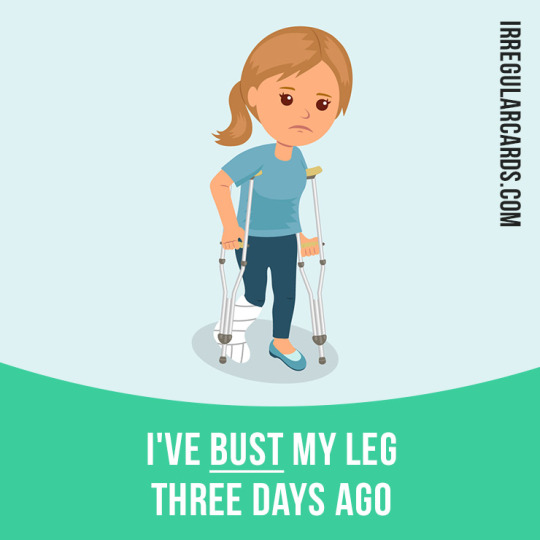

"Bust" = break something. ⠀ Past / Past Participle: bust (or busted) ⠀ Example: I've bust my leg three days ago. ⠀ Example: Thieves busted the lock and damaged the sliding door. ⠀ Learn irregular verbs in our app - https://onelink.to/9ssyrh
#irregular verbs#irregularverbs#english language#english#learn english#learnenglish#irregular verb#english verbs#efl#toeic#toefl#esl#vocabulary#vocab
12 notes
·
View notes
Text

Happy 2025! 🥂🤩 How do you say it in your language? 👇
#mondly#pearson#languages#languagelearning#learnlanguages#english#learnenglish#french#learnfrench#spanish#learnspanish#inglese#inglesfacil#2025#resolutions#newyear#happynewyear#resolutions2024#language
5 notes
·
View notes
Video
youtube
English Podcast 19 - How to eat more like a vegetarian
2 notes
·
View notes
Text
Modal verbs
Modal verbs are auxiliary verbs that express notions like possibility, permission, obligation, etc.

Follow @everythingaboutbiotech for informative and useful stuff.
#modalverbs#modality#grammarlessons#learnenglish#esltips#englishgrammar#auxiliaryverbs#modals#englishLanguage#englishteaching#onlineteaching#englishhelp#grammarguide#grammarmatters#grammarcheck#englishisfun#englishteacher#teachingenglish#teachgrammar#englishlearning#englishvocabulary#vocabularywords#wordoftheday#wordpower#englishclass#englishstudent#eltchat#tesol#tesoltips#onlinelearning
14 notes
·
View notes
Text
Hey there! 65 Words is a challenge for writing 65+ words daily in the language you’re learning. Submit anonymously, no login is required.
✨ Check it out at 65words.com ✨
It's a WIP. All feedback is welcome! 🙏
19 notes
·
View notes